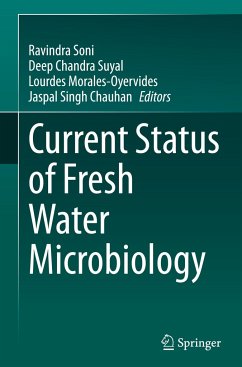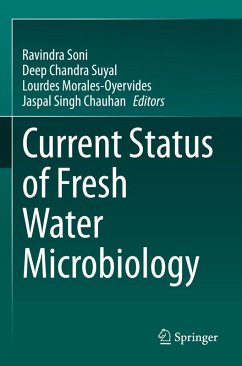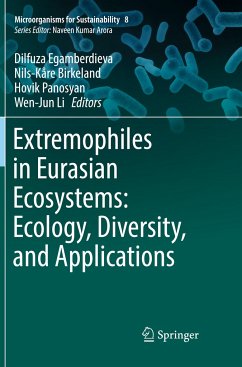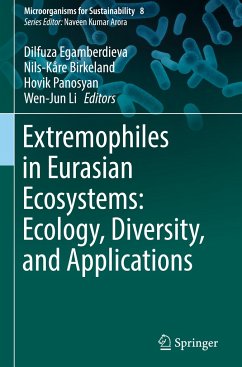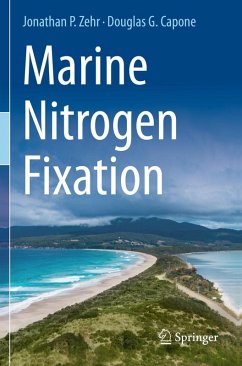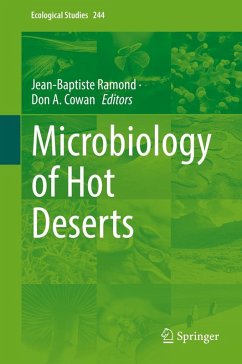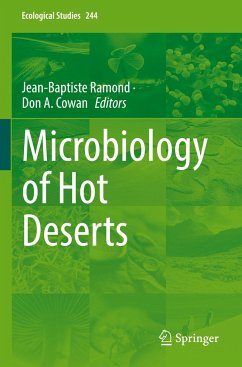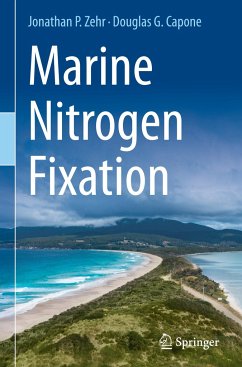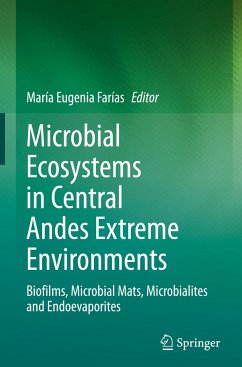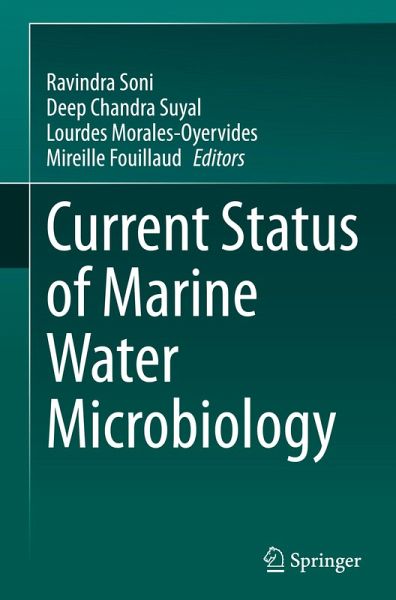
Current Status of Marine Water Microbiology

PAYBACK Punkte
95 °P sammeln!
This contributed volume focuses on the latest innovations in the field of marine microbiology. Marine ecosystems are dynamic natural resources and home to very primitive life forms. They include open sea, deep sea, coastal marine ecosystem mudflats, seagrass meadows, mangroves, and rocky intertidal systems. This book deals with the various aspects of marine microbiology including diverse habitats, associated microorganisms, their adaptations, ecological interactions, biogeochemical cycling, and industrial applications. It also discusses the issue of pollution in oceans and put forward availabl...
This contributed volume focuses on the latest innovations in the field of marine microbiology. Marine ecosystems are dynamic natural resources and home to very primitive life forms. They include open sea, deep sea, coastal marine ecosystem mudflats, seagrass meadows, mangroves, and rocky intertidal systems. This book deals with the various aspects of marine microbiology including diverse habitats, associated microorganisms, their adaptations, ecological interactions, biogeochemical cycling, and industrial applications. It also discusses the issue of pollution in oceans and put forward available strategies for its eco-friendly solution. In recent years, extensive research, advanced methodologies, and high-throughput instrumentation have resulted in voluminous data and information that require proper compilation and worldwide sharing. From this perspective, the book is a perfect documentation of primary and secondary data-based information on the latest research findings, case studies, experiences, and innovations in the field of marine microbiology. The book is of great use to students, researchers and professionals studying marine sciences.




